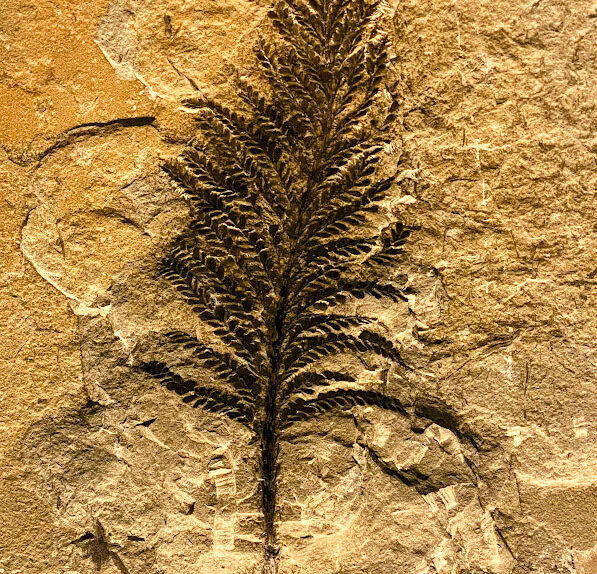Today we visited Miquasha National Park located near Carlton-sur-Mer, Quebec. There wasn’t a lot to see there. It was mostly a mind-bending experience.
First they tell us that the Appalachian mountains used to be 12 degrees south of the equator at one time. I remember seeing maps where they try to fit the Americas into Europe and Africa and say they split, but I’ve never seen this map. Look at that – Siberia is in the Caribbean and this part of Canada is below the equator all mashed into Europe, and Africa is at the South Pole.

The reason this site is so important is because it contains fossils coming from that time period where fish were developing lungs as well as gills and starting to form bones in their fins, like the beginning of legs. It’s like the beginning of animals on the earth, or as they put it “the first four-legged, air-breathing terrestrial vertebrates—the tetrapods.” Before that, it was plants on land and fish in the sea. This transition period is officially called the Upper Devonian Escuminac Formation during the Devonian Period known as the ‘Age of Fishes’, dating from 370 million years ago.
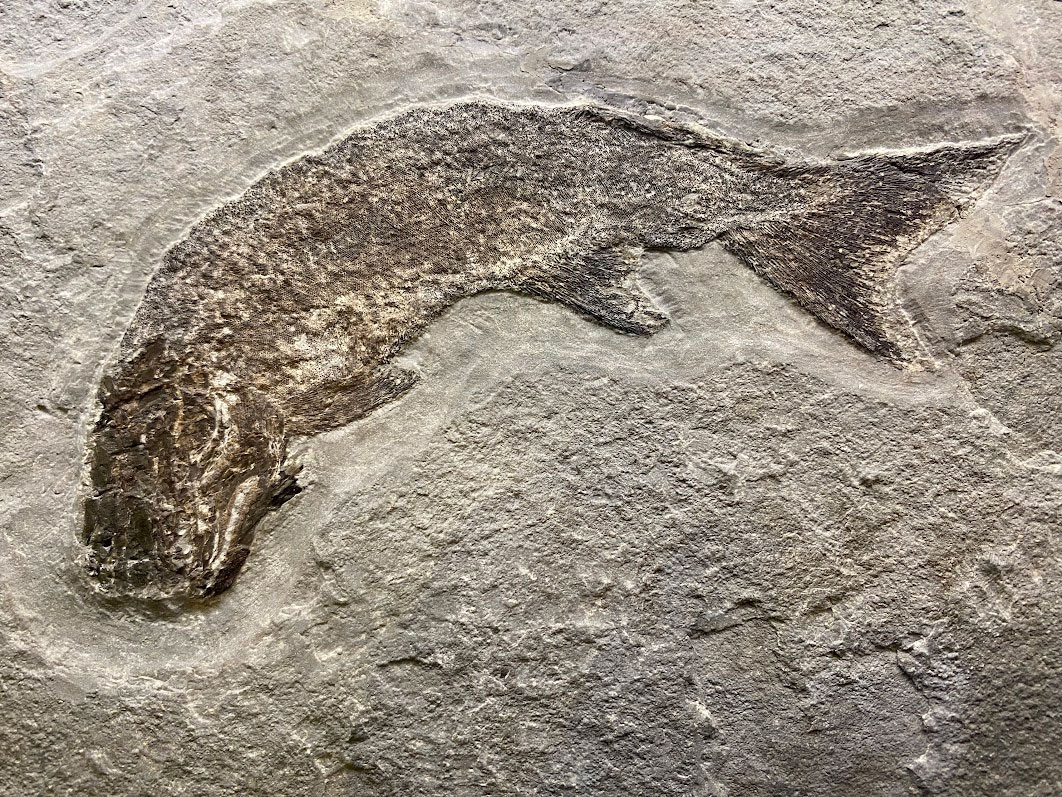
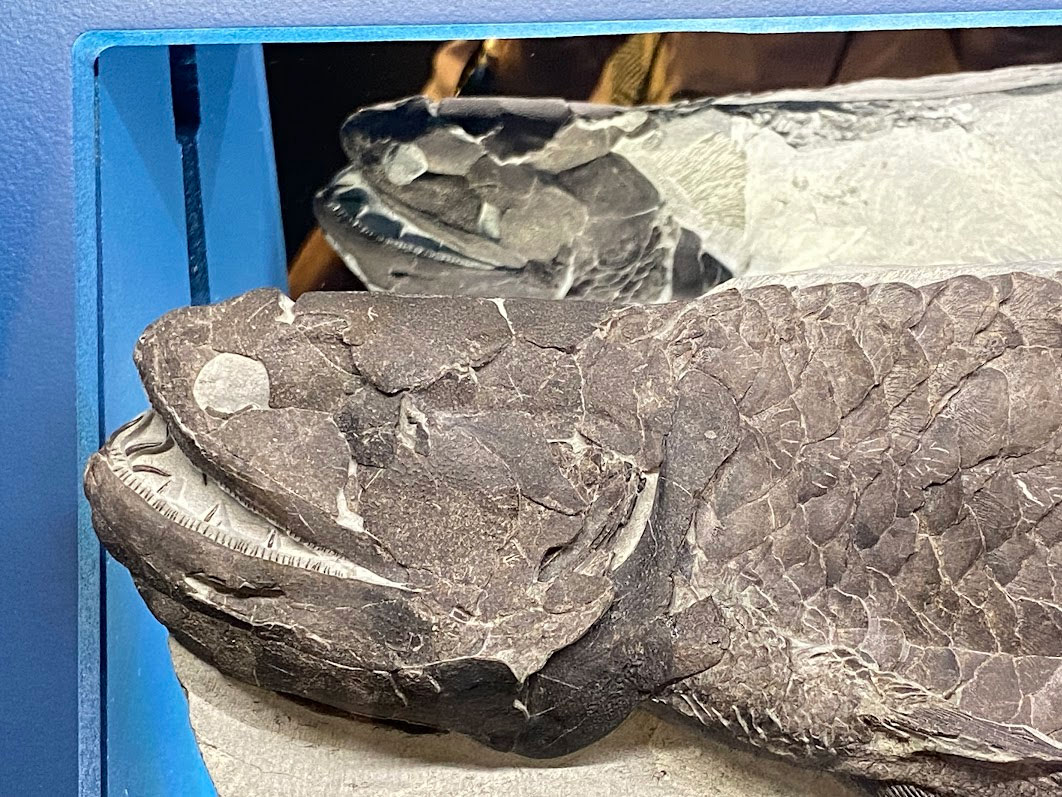
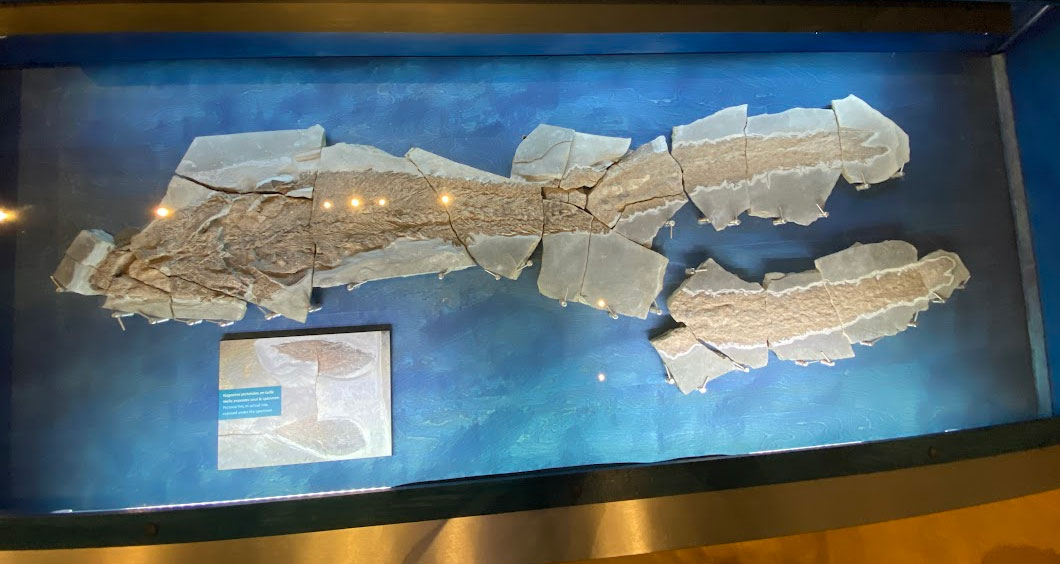
We walked down to the beach to see the cliffs where they find all the fossils. You can look for fossils, but you can’t keep them. They don’t even let you to take a plain rock. The scientists there walk the beach daily to see if the tide has left anything on the beach or for anything that has fallen off the fragile cliffs.
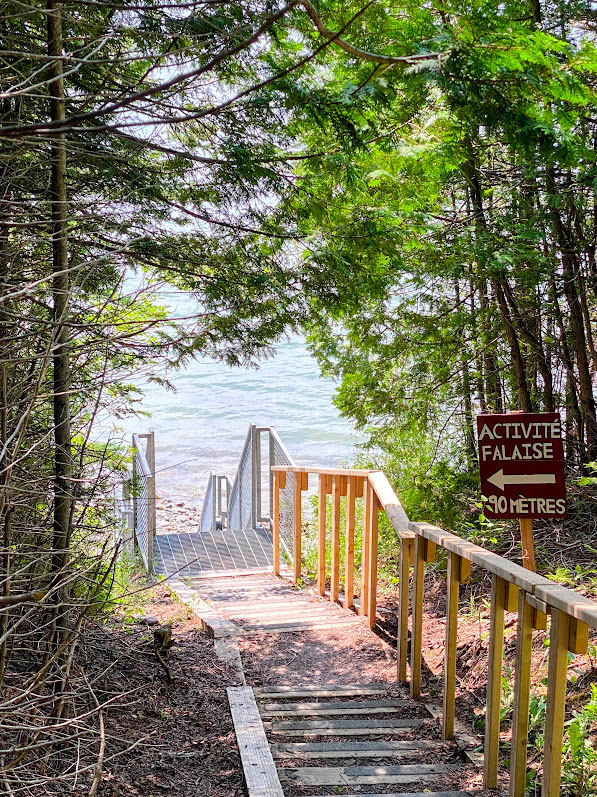
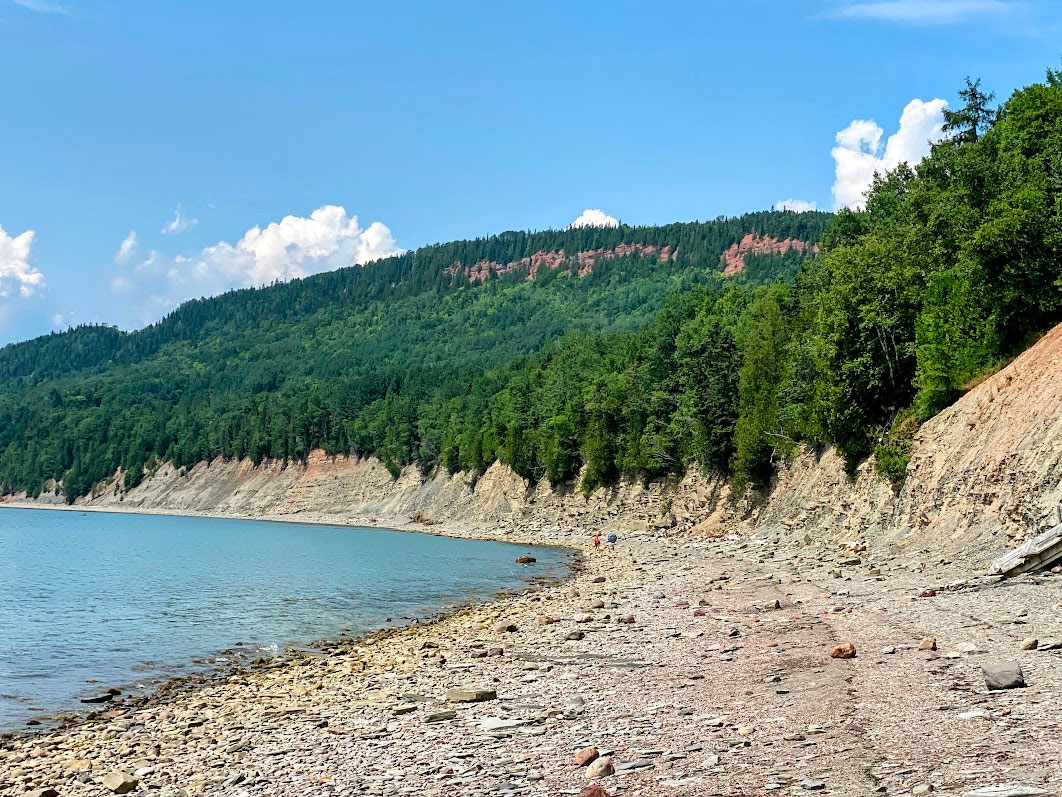
Since I began this tour 2 weeks ago, we have been traveling in the province (state) of Quebec. After the National Park today, we crossed the river into the province of New Brunswick. This is important for 2 reasons – the language is English and we are in another time zone, the Atlantic Time Zone. English is certainly going to help, especially in stores. And since it was getting light at 4 in the morning, it might make sleeping a little better. There is 15-1/2 hours of daylight each day right now – dark at 10pm and light at 5am.
